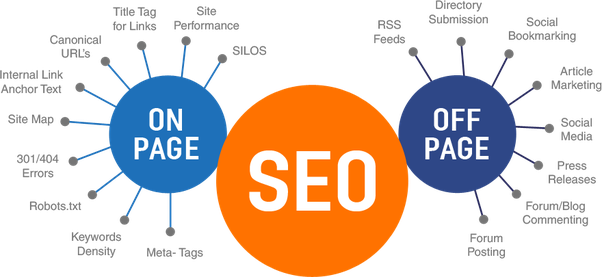
What is SEO?
Your website is the face of your company, and search engine optimization (SEO) is the process of adapting your website to upgrade your search engine rankings. SEO services aim at maximizing the traffic generated by your website using organic or unpaid search results. All the elements of your website should be created with the intent of obtaining TOP search engine rankings. These elements may include:
- The titles (Meta Tags) of the web pages
- The content of the website
- Graphics and designing of the webpages
- Keywords
- Links
SEO service providers offer keywords and key-phrases for maximum SEO. Your search engine rankings depend on a host of factors:
- How often is the content on your website updated? Is it relevant to your target audience? Most people search for specific information or a product. If your content is outdated, search engines would ignore your website in favor of a website with recently updated content.
- Your keywords should be competitive, relevant and popular.
- Put the most searchable elements at the front.
- Use original, easy to understand content; check if it is grammatically and syntactically correct.
- Verify whether your content provides your target audience what they were looking for.
- Make your content more accessible by using appropriate titles, headings, and subheadings.
- Keyword research is the core of any SEO campaign. Every business has its own set of buzzwords. Use the appropriate keywords, key-phrases, and keyword density; keyword stuffing will get your site penalized. You can also use keyword suggestion tools such as
- Ahref
- Google AdWords Keyword Tool
What are the different types of SEO?
White-hat SEO:
It utilizes organic tactics to help your site rank higher in Google or any other search engine’s results. One is using white-hat SEO when he follows the guidelines provided by the search engine, builds quality links and user-engaging content.
Black-hat SEO:
Black-hat SEO uses deceptive techniques to scale up to higher rankings in search results. These techniques include stuffing a massive number of irrelevant keywords in your content hoping to fool the search engines. Such practices can lead to your site being penalized heavily.
What do you mean by On-Page and Off-Page SEO?
On-page SEO
It focuses on providing a seamless experience to the users and includes things that you can control such as your coding, tags, headings, internal links within the website, the efficiency of the website, page-loading time, etc.
Off-page SEO
Off-page SEO is about those things that are not under your control, having nothing to do with the coding. Social networking through Facebook, Instagram, Twitter, etc. is indispensable to digital marketing, and the best way to build your brand or company’s online reputation; and this is what off-page SEO is all about building credibility and trust for your website.
How does SEO help in promoting your business?
SEO services identify your customers; determine what products, services, information, and resources does your website offer for its viewers; and optimize your website to improve its ranking for search engines. They create keyword-targeted content which can direct traffic to your website. Why should you use to implement SEO on your website?
- SEO is organic, and as your site goes up the rankings, you get more traffic.
- Since SEO results are not dependent on ads, your site will appear at the top of the charts without having to advertise using the pay-per-click system.
- SEO helps you stabilize the position of your website among the search results with minimum upkeep and gives huge returns.
- SEO helps in digital marketing and branding of your website because your page would be included among the top-ranked Google search results, only if your brand is credible.
Pages need to be internally linked from within the body of your content, not just via the navigation menus. Add reference links wherever needed and provide content that your viewers find useful and interesting.
Why do you need best-in-class SEO services?
SEO services keep a check on:
- Which website changes have had positive results?
- When was the last time your site was updated?
- Which competitors have had the most success in your arena?
- If you removed the ads from the pages on your website, would the content still offer your target audience what they are looking for?
- Does your website have social sharing buttons?
- Does your website have a comments section? Are there unanswered comments on your website?
Everyone desires to get higher up in the Google rankings by mastering SEO, but only those will be successful who don’t forget these things:
-
- People expect an SEO implementation to deliver quick results, but it may take several months to see a positive result.
-
- Google and other search engines penalize sites that take a long time to load, so keep the site-loading speed in check. Google checks the site speed, backlinks, social media connections, site usability, etc. to rank your website. Make sure your website is optimized for mobile also.
-
- Do not include a keyword if it is not relevant. Determine the relevance of your site when someone enters a keyword or phrase into Google. Use tools like Google AdWords keyword tool to determine the most relevant keywords for your market. Understand that cramming keywords in your content will not help you!
-
- Frequently update the content on your website. You can set up a blog on your site to curate content relevant to your target market.
-
- Ensure that your site is linked to your social media content. Both outbound and internal links are crucial. Wherever you mention a site or a source, make sure these include a reference and a hyperlink.
-
- SEO and user experience go hand in hand. Poor content or bad quality of your products and services will eventually prove detrimental, and there is a good chance that the users won’t return, no matter how good the content on your website is. Earn a good following and reputation among your customers.

Recent Comments